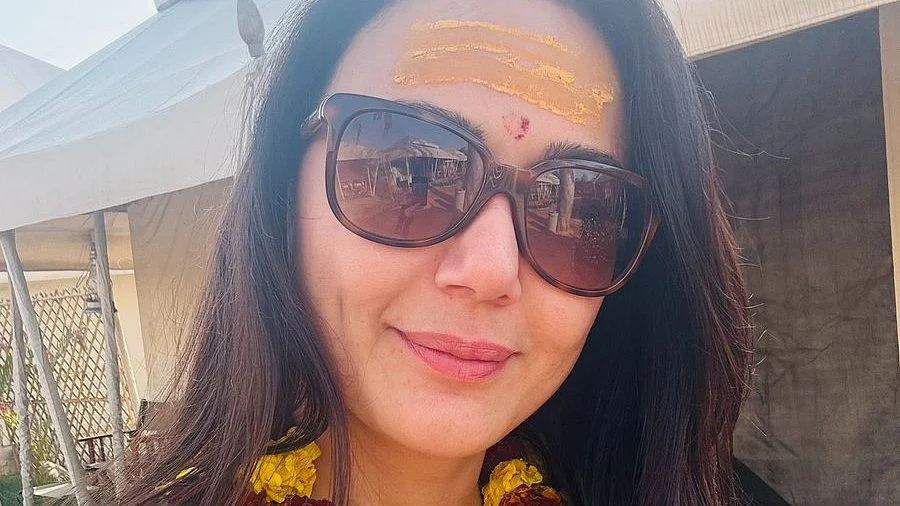Business
Rs 135 crore fraud ignored? RBI under fire over New India Cooperative Bank
Actor Preity Zinta has meanwhile denied the alleged Rs 18 crore loan write-off, while the Reserve Bank cracks its whip... very slowly

Bollywood actress Preity Zinta has firmly denied allegations regarding an Rs 18 crore loan write-off at the crisis-hit New India Cooperative Bank Ltd, stating that she had fully repaid her dues more than a decade ago.
Her response comes in light of a detailed report alleging large-scale financial mismanagement and corruption within the Bank, which ultimately led to the Reserve Bank of India (RBI) imposing severe restrictions on its operations.
According to the news report in moneylife, the New India Cooperative Bank, under the leadership of chairman Hiren Bhanu, sanctioned corporate loans of up to Rs 25 crore without the knowledge of branch managers. Many of these loans turned into non-performing assets (NPAs) within a year, allegedly due to funds being diverted through other financial institutions.
Among the most high-profile cases highlighted was a Rs 18 crore loan allegedly given to Preity Zinta, which was reportedly written off without following due recovery procedures.
Published: undefined
However, in a statement issued (to moneylife) through her legal team, Zinta categorically refuted the claim, saying, "More than 12 years ago, I had an overdraft facility with the New India Co-operative Bank. More than 10 years ago, I have repaid in full the entire dues in respect of this overdraft facility and the account stands closed."
The report also alleges that the Bank extended Rs 95 crore in loans to Rajhans Group and regularly sold NPAs worth Rs 210 crore to Omkara Assets Reconstruction Pvt Ltd (ARC), raising concerns over potential fraudulent loan write-offs.
Additionally, a Rs 7 crore loan was sanctioned to ACAIPL, a sister concern of Omkara ARC, allegedly without proper due diligence.
Published: undefined
As early as January 2020, former employees of New India Cooperative Bank had alerted RBI about rampant financial irregularities and corruption within the Bank. In a letter to the executive director of RBI's department of regulations, these whistleblowers detailed instances of financial mismanagement, unethical practices, and preferential treatment given to certain borrowers.
The letter further alleged that over 80 senior staff members were forced to resign in 2019, with family members of senior executives securing privileged promotions despite lacking banking experience. The employees had urged RBI to conduct a forensic audit, dissolve the board of directors, and recover losses from the personal assets of directors and management.
After years of warnings and growing financial instability, RBI finally stepped in last week, citing supervisory concerns and liquidity issues within the Bank. The central bank imposed severe operational restrictions, preventing the lender from granting or renewing loans, making investments, or disbursing any payments without prior written approval from RBI.
As part of its intervention, RBI also superseded the board of directors for the next 12 months and appointed Shreekant, a former chief general manager of the State Bank of India (SBI), as the administrator to oversee the Bank's operations. A committee of advisers, including Ravindra Sapra (former GM of SBI) and Abhijeet Deshmukh (chartered accountant), has also been appointed to assist in managing the Bank.
The crisis has left many depositors in distress, with long queues forming outside the Bank's branches as customers attempted to withdraw funds. Under the new restrictions, customers are unable to withdraw money from their savings or current accounts, although RBI has assured that depositors will receive insurance claims of up to Rs 5 lakh under the Deposit Insurance and Credit Guarantee Corporation (DICGC) Act, 1961, subject to verification.
Published: undefined
The Bank’s acting CEO assured depositors that the insured amount is expected to be paid within 90 days.
New India Cooperative Bank has been grappling with financial losses in recent years, posting a net loss of Rs 23 crore in FY23–24 and Rs 31 crore in FY22–23. Its advances declined from Rs 1,330 crore in 2023 to Rs 1,175 crore in 2024, while deposits saw only a marginal increase from Rs 2,406 crore to Rs 2,436 crore.
One of the most alarming findings is that the Bank’s audited financials reported Rs 122 crore in cash on hand in 2023, which increased to Rs 135 crore in 2024.
However, the RBI’s latest action suggests that this entire sum was missing, leading to speculation that the Bank may have had no actual cash reserves.
While these restrictions do not imply the cancellation of the Bank’s license, RBI has stated that it will continue to monitor the situation closely and may revise its directives based on the Bank’s financial recovery. The restrictions will remain in effect for at least six months, with the situation under regular review.
With 28 branches primarily in Maharashtra and Gujarat, the Bank's future remains uncertain as authorities investigate the extent of financial mismanagement. The latest developments underscore the urgent need for regulatory vigilance and stricter oversight to prevent cooperative banks from collapsing due to unchecked corruption and mismanagement.
As depositors await clarity on their funds and investigations continue, the New India Cooperative Bank scandal raises pressing questions about banking regulations and the role of RBI in preventing such crises before they reach a breaking point.
Published: undefined
Follow us on: Facebook, Twitter, Google News, Instagram
Join our official telegram channel (@nationalherald) and stay updated with the latest headlines
Published: undefined